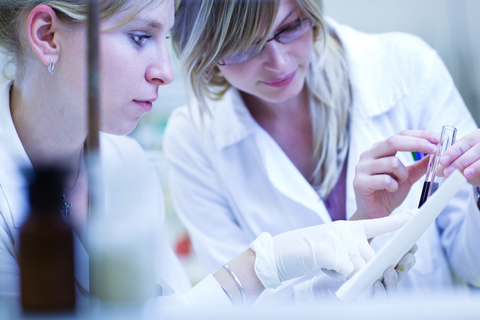Bangor University opens new health and wellbeing labs

Bangor University has invested £1m in a new state-of-the-art facility, the PAWB Centre, at its School of Sport Health & Exercise Sciences (Bangor University, 2017).
Two new exercise physiology laboratories, which research the functioning of the human body and a large new teaching laboratory will extend and complement the School of Sport Health & Exercise Sciences existing teaching and research resources. These address the range of health benefits from exercise and physical activity and also investigate performance, sport and extreme environments. The new, highly flexible space is a significant additional resource for the School’s students and researchers and will, in the main, focus on physiology and rehabilitation.
Professor Tim Woodman, Head of the School of Sport, Health & Exercise Sciences, said “This new expansion ensures the best learning experience for students by co-locating new teaching spaces with the physiology testing and rehabilitation labs. This re-enforces the crucial link between the research being delivered by the School and its teaching activities. The new labs will ensure that the School continues to offer an excellent environment for both physiological research and student development.”
Dr Peter Higson, Chairman, Betsi Cadwaladr University Health Board, said “The School conducts excellent research and has extensive links with the Betsi Cadwaladr University Health Board, contributing to its research efforts through collaborative activities. The labs will enable this collaboration to better address specific health and well-being challenges facing both the Welsh and global population.”
Several researchers and students will be demonstrating their work at the opening. Among them is Dr Jamie Macdonald, a Senior Lecturer in Clinical Exercise Physiology and Outdoor Activities and member of the School’s extremes research group. He said “We will be demonstrating an exercise bike that has been specifically designed to be used in a haemodialysis unit. Patients with stage five chronic kidney disease require regular treatment where they are connected to an artificial kidney to remove waste products and excess fluid from their bodies. This treatment takes place in a haemodialysis unit three times a week for approximately four hours. During the treatment the patient has to sit on a chair. Our newly designed exercise bike allows the patient to exercise during their treatment, increasing their physical activity and potentially improving their quality of life.”
Dr Aamer Sandoo, a lecturer in cardiovascular physiology and researcher in the School’s Health, Exercise and Rehabilitation research group will be showing how he uses high-resolution ultrasound to examine the health of the large blood vessels. Ultrasound is commonly used in clinical research to understand more about the biological processes which cause heart disease. Aamer Sandoo has extensively published his work utilising cutting edge assessments of blood vessel health in patients with rheumatoid arthritis, breast cancer and other autoimmune diseases.
Other demonstrations reflect the broad range of current research in areas including sleep apnea, the effect of a sweet taste on heart rate and work on knee muscle function.








